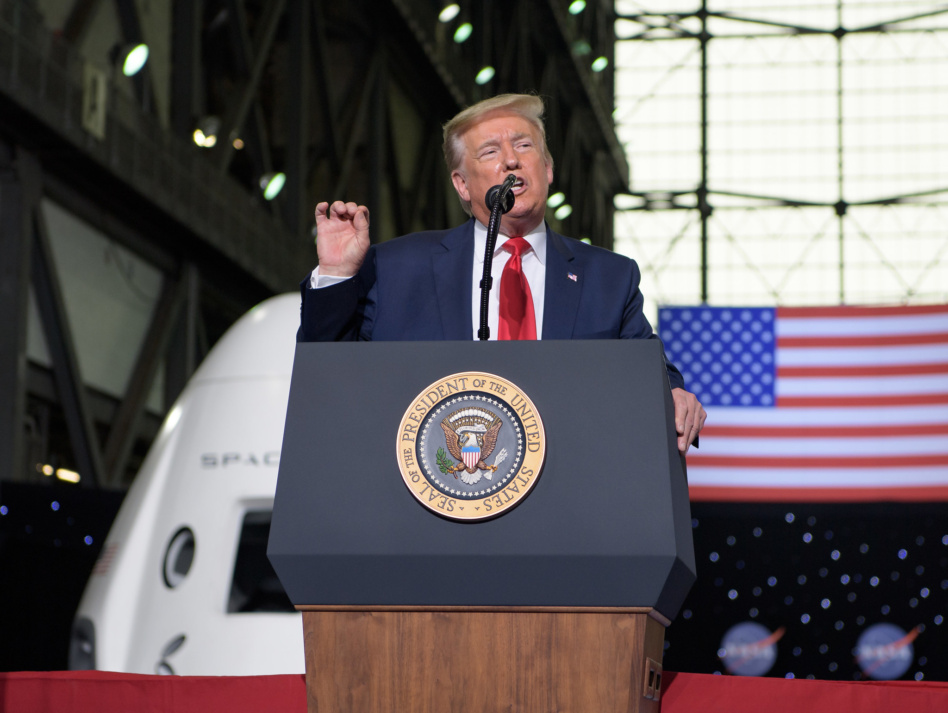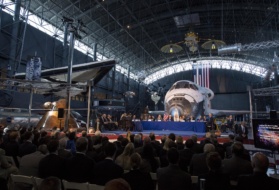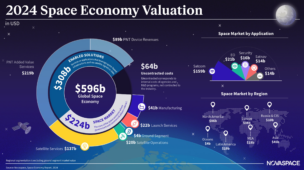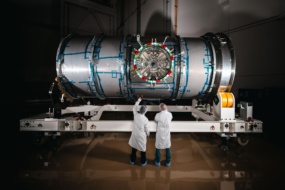It’s time to play the game again! On Friday, the White House released top-line budget numbers that covered key space spenders at DoD and NASA. While there’s no guarantee this is what the final budget looks like, here’s our guide to the people, companies and concepts that stand to gain, and those that are in trouble.
The winners:
The high-level budget proposal reflects who has leverage in Trump world.
SpaceX CEO Elon Musk: Entirely by coincidence, Musk’s perch in the White House led to a lot of advantageous spending for his company. Massive cuts at NASA aren’t touching the programs SpaceX is committed to, while Musk’s Mars agenda will get a $1B increase. The company seems poised to benefit from proposed cuts to legacy Moon-landing tech and is reportedly the frontrunner in the DoD’s push for new space-based missile defenses.
Mars believers: The cohort of folks who see Moon landings and space telescopes as a distraction from Martian settlement now have the money flowing their way.
Hypersonics and space weapons: If your company makes hypersonic propulsion systems (Ursa Major), tests them (Rocket Lab), or plans to field novel space weapons (True Anomaly)— congratulations! You read the writing on the wall.
People who don’t like climate science: Good news for you: This plan ditches NASA’s “low-priority climate monitoring satellites.”
Commercial as a concept: The decision to cancel SLS and Orion after two more missions in favor of (let’s be real) SpaceX and Blue Origin vehicles that don’t yet exist is a big win for “commercial space”—as is continuing to deemphasize ISS in favor of commercial stations. But is the US just replacing one set of over-schedule, over-budget, politically connected contractors with another?
Try again next time:
The spending plan also shows us who isn’t pulling weight with the new administration.
The space industry: Do the math: Cutting $6B in spending on space at NASA means a big drop in demand for space services and supply chains. Meanwhile, defense hawks are crying foul at the White House’s claims that its budget increases national security spending.
Take it from the Aerospace Industries Association:
“We are concerned by significant proposed cuts to civil space funding, particularly to key NASA spaceflight and science programs that sustain a healthy space supply chain and thousands of skilled jobs. These programs are vital for maintaining our global innovative edge and should be enhanced. We are also troubled by the lack of increased investment for the Department of Defense at a time when bold action is needed.”
Primes: Boeing’s, Northrop Grumman’s, and Lockheed Martin’s biggest civil space projects are going away, even as they face more competition in the national security arena from SpaceX, Palantir and Anduril.
Space science: That screaming noise you hear is the space science establishment. The chainsaw cuts at NASA will mean the end of promising missions like the Nancy Grace Roman Space Telescope (and waste billions of dollars already spent developing them). Even if you’re not impressed with NASA’s mission management, this isn’t funding that will be repurposed more efficiently—it’s gone.
Mars Sample Return: Cancelling plans for a robotic retrieval mission (even a commercial alternative like Rocket Lab’s proposal) in favor of sending astronauts to get samples means indefinite delays for scientists hoping to crack open Martian mysteries.
International partnerships: The Artemis program included collaborations with space agencies in Europe, Japan, and Canada on the Gateway platform and the Orion spacecraft, with plans to send international astronauts to the lunar surface. With Gateway and the existing Artemis architecture facing cancellation, it’s not clear what the rest of the space community’s role will be. Good thing there’s not another deep-pocketed nation with an ambitious Moon exploration program just waiting for collabora…oh, wait.
Sen. Ted Cruz: The Texas Republican said last week he was endorsing Trump’s NASA administrator nominee, Jared Isaacman, because of Isaacman’s commitment to a sustainable lunar presence. This budget says bye-bye to all that, and now Cruz will need to lead a fight in Congress to maintain that commitment.




